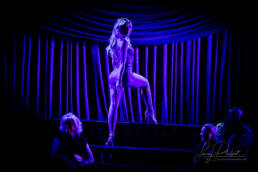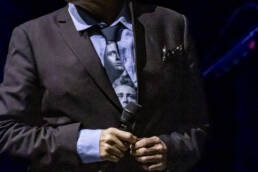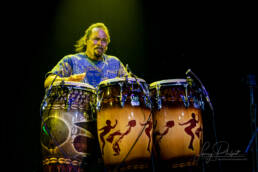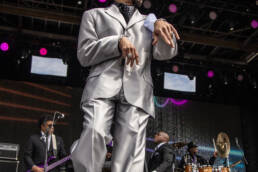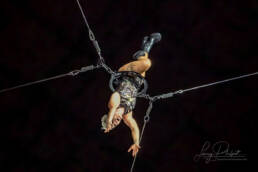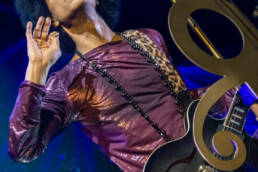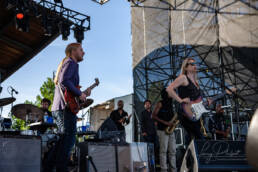John Popper: The Harmonica Virtuoso Who Found His Voice
John Popper, born March 29, 1967, didn’t always dream of music. As a kid in Cleveland, Ohio, he leaned toward comedy, using humor to dodge bullies and win friends. But everything changed when he saw The Blues Brothers. The raw energy of John Belushi and Dan Aykroyd ignited a spark. Suddenly, comedy took a backseat, and music called his name. Popper grabbed a harmonica, inspired by the film’s soulful sound, and found his true passion. By high school, he was hooked, trading punchlines for melodies. That pivotal moment, watching the Blues Brothers belt it out, pushed him to pursue music relentlessly, shaping his career as the frontman of Blues Traveler.

A Life Shaped by Sound
Popper’s journey began in Chardon, Ohio, where his Hungarian immigrant father, who fled Budapest in 1948, raised him alongside his mother, a lawyer. Growing up, he bounced between Stamford, Connecticut, New York, and New Jersey, attending schools like Davenport Ridge, Stamford Catholic High, and Princeton High School, graduating in 1986. As a child, he tried piano, cello, and guitar, but none stuck. He loathed practicing, feeling trapped by structure. Yet, humor was his shield, a way to navigate schoolyard struggles. When he and a friend performed a Blues Brothers routine, the stage felt alive. The harmonica became his voice, especially after a bold high school performance of “She Blinded Me with Science,” where he swapped trumpet for harmonica in the school jazz band.
After high school, Popper moved to New York City, enrolling at the New School for Jazz and Contemporary Music alongside friends Chan Kinchla, Brendan Hill, and Chris Barron. College didn’t hold his attention, though. Music did. By 1987, he and his high school buddies formed Blues Traveler, a band that would define his life. Three years later, they signed a record deal, and Popper left school to chase the dream full-time. His harmonica skills, honed through relentless practice, became legendary, earning him a spot as a Hohner “Featured Artist,” a nod to his virtuosity.
Popper’s life wasn’t just music. He married Jordan Auleb in 2013, and they welcomed their daughter, Eloise Ann, in 2015. The marriage ended in 2018, but Popper remains a devoted father, often sharing moments with Eloise on social media. He’s also an avid collector of weaponry—firearms, swords, even a $10,000 Civil War cannon—fascinated by their “life-savingly efficient” design. This passion stirred controversy, as did his vocal support for Second Amendment rights, including a 2003 Daily Show appearance where he cited New Jersey’s gun laws as a reason for leaving the state.
A Career of Jams and Journeys
Blues Traveler, formed in Princeton, New Jersey, in 1987, became Popper’s musical home. Alongside guitarist Chan Kinchla, drummer Brendan Hill, and bassist Bobby Sheehan, the band carved a niche in the 1990s jam band scene. Their relentless touring—sometimes 300 shows a year—built a loyal fanbase. In 1990, they released their self-titled debut album, but 1994’s four launched them into the mainstream. Hits like “Run-Around” and “Hook” dominated radio, blending blues, rock, and Popper’s searing harmonica. After Sheehan’s tragic death in 1999 from a heroin overdose, Tad Kinchla (Chan’s brother) and Ben Wilson joined as bassist and keyboardist, respectively, rounding out the current lineup.
Popper’s collaborations extended beyond Blues Traveler. He lent his harmonica to Dave Matthews Band’s “What Would You Say,” Spin Doctors’ Pocket Full of Kryptonite, and John Oates’ 1000 Miles of Life. In 2004, he formed The John Popper Project with DJ Logic, Tad Kinchla, and drummer Marcus Bleeker, releasing a genre-blending album in 2006. Another side project, John Popper & the Duskray Troubadours, debuted in 2011 with an Americana roots sound, produced by Jono Manson. Popper also narrated Das Clown, a Sundance-screened short film, and appeared in films like Kingpin (1996), Blues Brothers 2000 (1998), and The Meddler (2016), plus TV shows like Roseanne and Pawn Stars.
In 1992, Popper co-founded the H.O.R.D.E. Festival, a platform for up-and-coming jam bands like Phish and Spin Doctors. His 1999 solo album, Zygote, recorded just months after emergency heart surgery, showcased his resilience, though the tour was cut short due to low ticket sales. In 2017 and 2018, he embraced solo acoustic shows, often with Ben Wilson, blending Blues Traveler classics with solo work. His cameos, like performing with the Hungarian Ambassador, highlight his eclectic connections.
Popper’s awards reflect his impact. In 1996, Blues Traveler won a Grammy for Best Rock Performance by a Duo or Group for “Run-Around.” Their 2021 album, Traveler’s Blues, earned a Grammy nomination for Best Traditional Blues Album in 2022. While not inducted into the Rock and Roll Hall of Fame, Popper’s influence on the jam band scene remains undeniable.
Biggest Songs and Their Creators
- Run-Around: Written by John Popper, this 1994 hit from four became Blues Traveler’s signature song, blending catchy hooks with harmonica flair.
- Hook: Also penned by Popper, this 1994 track cleverly satirized pop music’s formulaic structure while becoming a chart-topping hit.
- But Anyway: Written by Popper and Chan Kinchla, this 1990 debut single captured the band’s raw, improvisational energy.
- Carolina Blues: Co-written by Popper and Chan Kinchla, this 1997 track from Straight On Till Morning showcased their bluesy grit.
Controversies and Challenges
Popper’s life hasn’t been without turbulence. In 1999, he faced a life-threatening heart condition, undergoing emergency surgery for artery blockage. The ordeal, coupled with Sheehan’s death that same year, shook the band. Popper’s struggle with obesity, once reaching morbid levels, fueled health concerns, though he lost over 200 pounds post-surgery. His outspoken Second Amendment advocacy sparked debate, especially after his MTV roundtable on gun control and his Daily Show comments. Politically, he surprised fans by endorsing George W. Bush in 2004, then voting for Barack Obama in 2008, and supporting Ron Paul in 2012, reflecting his independent streak.
A 1992 motorcycle accident left Popper performing in a wheelchair for months, yet he powered through, showcasing his grit. Rumors of his death surfaced in 2024, with some fans mistakenly believing he’d passed due to health struggles. Popper, very much alive, continues performing, looking healthier than ever at recent shows.
A Night to Remember
One unforgettable performance came in 1996 on The Howard Stern Show. Popper, in peak form, unleashed a blistering harmonica solo during “Run-Around.” The band’s energy captivated the audience, with Popper’s harmonica weaving through the melody like a storyteller spinning a tale. Fans on Reddit later raved about the moment, one calling it “mind-blowing,” comparing Popper’s skill to Stevie Wonder’s. The performance, raw and electrifying, cemented his reputation as a harmonica maestro. Even disabled children invited onstage felt the magic, as Popper played directly to them, creating a heartfelt connection that lingered long after the final note.
That night wasn’t just about music; it was Popper’s soul poured into every breath. The band’s tightness, honed by years of relentless touring, shone through. Fans who caught Blues Traveler opening for bigger acts often stayed, mesmerized, skipping planned breaks. This moment, among many, defined Popper’s ability to turn a stage into a story, drawing listeners into his world.
Popper’s legacy endures. From a kid inspired by a movie to a harmonica icon, he’s shaped the jam band scene. His custom harmonica belt, seamless key switches, and raw vocals keep audiences hooked. Despite health scares, personal losses, and controversies, Popper’s resilience shines. He’s still out there, harmonica in hand, telling stories through music.
